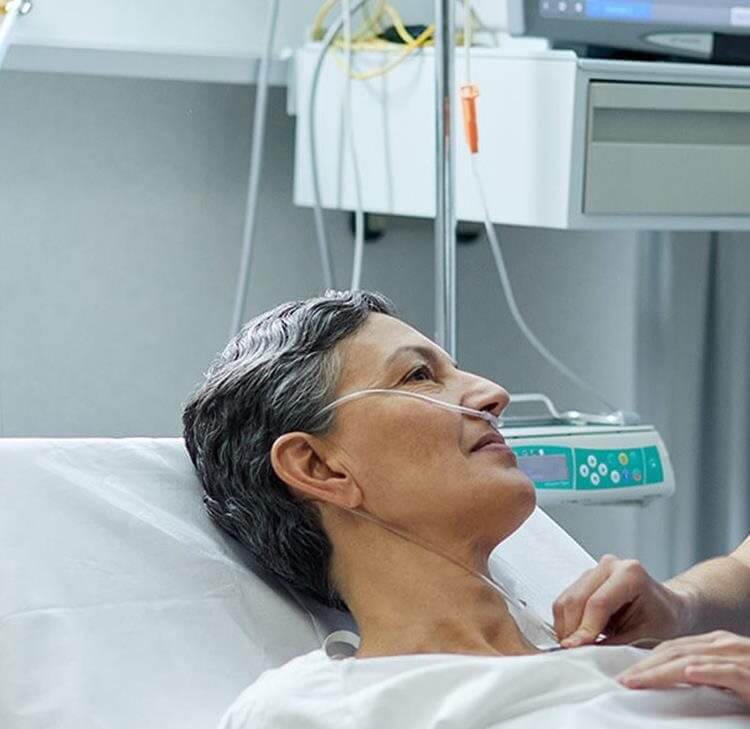As the UK prepares for another general election, healthcare is once again a key issue on the agenda. With the NHS facing a range of challenges, including staff shortages, funding constraints, and increasing demand for services, the political parties have all outlined their plans for the future of healthcare in their manifestos.
We have reviewed the manifestos of the three main political parties – Conservatives, Labour and the Liberal Democrats – and in this article we provide an overview of their pledges in key healthcare areas. We have focussed on GP and dental practices, mental health care, cancer care and ambulance services. Additionally, we have delved into each party’s stance on the NHS workforce and technology.
Election pledges for primary care services
GP practices
There have been widespread reports of difficulties in securing GP appointments for some time. The 2023 Annual GP Patient Survey report found that only 50% of respondents found it easy to get through to their practice by phone – a lower figure than all previous years. Further, the proportion of patients who reported being seen later by their GP than they wanted has increased year on year between the 2021 and 2023 surveys. It is therefore no surprise that all three major political parties have pledged to address this issue and make it easier for patients to see a GP.
- The Conservative Party has promised to build or modernise 250 GP surgeries, with a particular focus on areas experiencing new housing growth, and to build 50 more Community Diagnostic Centres. Additionally, the Conservatives plan to expand Pharmacy First – a scheme launched in January 2024 that enables community pharmacies to complete episodes of care for common conditions, such as earache and sore throat. The plan is to extend the scheme to include menopause support, contraception, and treatment for chest infections, thereby freeing up to 20 million GP appointments a year.
- The Labour Party has committed to train thousands more GPs, guaranteeing a face-to-face appointment for those who want one. Labour plans to incentivise GPs to see the same patient, so ongoing or complex conditions are dealt with effectively. The party says it will improve access to services and treatment via a Community Pharmacist Prescribing Service, granting more pharmacists independent prescribing rights. Opticians and other professionals will be able to make direct referrals to specialist services or tests. Labour will also trial Neighbourhood Health Centres, consolidating existing services such as family doctors, district nurses, care workers, physiotherapists, palliative care, and mental health specialists under one roof.
- The Liberal Democrats have pledged to ensure that everyone has the right to see a GP or the most appropriate practice staff member within seven days, or within 24 hours in urgent cases. To achieve this, they plan to increase the number of full-time equivalent GPs by 8,000, and grant more prescribing rights and public health advisory services to pharmacists, nurse practitioners, and paramedics.
In addition, all three parties have pledged to reform the GP booking system. The Conservative and Labour parties have both committed to improving the NHS App, allowing patients to book GP and vaccine appointments and order prescriptions through the app.
Dental practices
Like GP practices, the challenges to accessing NHS dentistry have been reported for some time. The latest British Social Attitudes survey, conducted by the National Centre for Social Research, found that satisfaction with NHS dentistry had fallen to a record low of 24%. Reforms to dental services are therefore also high on the agenda of the three main political parties.
- The Conservative Party has promised a Dental Recovery Plan, which it says will unlock 2.5 million more NHS dental appointments. The plan includes a patient premium to encourage dentists to take on new NHS patients, and reforms to the dental contract, ensuring newly qualified dentists must work in the NHS for a number of years or pay back their training costs. Dental vans and “golden hellos”, to encourage dentists to work in rural and coastal communities, have also been pledged.
- The Labour Party has promised a dentistry rescue plan to provide 700,000 more urgent dental appointments and recruit new dentists to areas that need them most. Labour will also reform the dental contract, with a shift to focusing on prevention and the retention of NHS dentists.
- The Liberal Democrats are promising to guarantee access to an NHS dentist for everyone needing urgent and emergency care. They plan to bring dentists back to the NHS from the private sector by “fixing the broken NHS dental contract” and using flexible commissioning to meet patient needs. They also plan to introduce an emergency scheme to guarantee access to free NHS dental check-ups for those already eligible (e.g. children and those on low incomes).
Election pledges for secondary care services
Mental health
The state of mental health care in the UK is a growing concern, as highlighted by the most recent Care Quality Commission (CQC) State of Care in England report and the Healthcare Inspectorate Wales’s Annual Report on Mental Health Hospitals, Learning Disability Hospitals and Mental Health Act Monitoring (2022-23). There are lengthy waiting times for treatment, under-funded services, and a shortage of mental health professionals. The COVID-19 pandemic has further exacerbated the problem, with many people experiencing increased levels of anxiety and depression. All three major political parties have made mental health a priority and have proposed various reforms to the system. Below, we have outlined some of these proposed changes.
- All three parties have pledged to modernise mental health legislation to provide better treatment and support for patients. The Labour and Liberal Democrats parties have promised to introduce legislation that will give patients greater choice and control over their treatment.
- The Conservative Party has promised to expand coverage of mental health support teams to 100% of schools and colleges in England by 2030, open early support hubs for those aged 11-25 in every local community by 2030, increase the planned expansion of NHS Talking Therapies by 50% (supporting people with anxiety, stress and depression), and boost the capacity of individual placement and support (supported employment) for people with severe mental illness by 140,000 places. The party has also pledged to improve access to mental health services for new mums.
- Labour has promised to give mental health the same attention and focus as physical health. The party plans to recruit 8,500 new mental health staff to treat children and adults during its first term. New staff will be specially trained to support people at risk of suicide. Labour’s new Young Futures hubs will provide open access mental health services for children and young people in every community.
- The Liberal Democrats have pledged a long list of mental health reforms, including:
- walk-in hubs for children and young people in every community,
- offering regular mental health check-ups at key points in people’s lives when they are most vulnerable to mental ill-health,
- putting a dedicated, qualified mental health professional in every school,
- ending out-of-area mental health placements by increasing capacity and coordination between services, so that no one is treated far from home,
- extending young people’s mental health services up to the age of 25 to end the drop-off experienced by young people transitioning to adult services,
- increasing access to clinically effective talking therapies,
- transforming perinatal mental health support for those who are pregnant, new mothers and those who have experienced miscarriage or stillbirth, and
- ending inappropriate and costly inpatient placements for people with learning disabilities and autism.
Cancer care
NHS England reports that cancer outcomes have improved significantly over recent years with survival rates reaching an all-time high. However, there are still challenges in cancer care, including regional disparities in access to care, long waiting lists for tests and treatment (exacerbated by the Covid-19 pandemic) and a shortage of healthcare professionals. As a result, the three main parties have included cancer care in their manifestos.
- The Conservative Party has promised to implement a Major Conditions Strategy to prevent six major health conditions, including cancer, from occurring and to ensure those living with them receive the best possible care. It has also committed to improve waiting times for cancer care.
- Labour plans to introduce a new ‘Fit For the Future’ fund to double the number of CT and MRI scanners, allowing the NHS to catch cancer and other conditions earlier. Whilst not specific to cancer care, Labour has also promised to deliver an extra two million NHS operations, scans, and appointments every year. They plan to do this by incentivising staff to carry out additional appointments out of hours, pooling resources across neighbouring hospitals to introduce shared waiting lists and by using spare capacity in the independent sector to ensure patients are diagnosed and treated more quickly.
- The Liberal Democrats have pledged to boost cancer survival rates by replacing and increasing the number of radiotherapy machines, recruiting more cancer nurses and passing a Cancer Survival Research Act, requiring the government to coordinate and ensure funding for research into the cancers with the lowest survival rates.
Ambulance services
The 2022/23 CQC State of Care in England report highlighted a notable decline in ambulance services, with 4 out of the 10 ambulance trusts rated as “requires improvement” or “inadequate” during 2022/23. Additionally, the Healthcare Inspectorate Wales’s Annual Report 2022/23 highlighted increasing pressure on the emergency care system, leading to overcrowded emergency departments and delays in ambulance handovers, ultimately impacting ambulance response times. We looked to see whether the major political parties made any pledges in respect of ambulance services.
- We could not see that the Conservatives or Labour have specifically addressed ambulance services in their manifesto. The Conservative Party however says that it is delivering record training places for paramedics and has promised to improve waiting times for “emergency care”.
- The Liberal Democrats have promised to “fix the life-threatening crisis in our ambulance services” by increasing the number of staffed hospital beds, thereby ending excessive handover delays for ambulances; publish accessible, localised reports of ambulance response times and create an emergency fund to reverse closures of community ambulance stations and cancel planned closures where needed. The party has also pledged to enable patients to leave hospital when they no longer need to be there by investing in social and community care.
Election pledges for workforce
In May 2024, The King’s Fund reported that whilst the NHS workforce is growing, it is not increasing rapidly enough to keep pace with demand. It claimed that the NHS is facing a workforce crisis and that urgent action is needed to ensure that the NHS has enough staff in place to deliver high-quality care and to develop the service for the future. All three major political parties have addressed the NHS workforce in their manifestos.
- The Conservative Party has promised to create a Long-Term Workforce Plan and recruit 92,000 more nurses and 28,000 more doctors than in 2023. It has pledged to increase training places for other clinicians such as midwives and paramedics and boost training places for dentists and other dental care professionals by 40%. It also plans to “cut waste and bureaucracy” in the NHS by reducing the number of managers by 5,500, releasing £550 million for frontline services and simplifying and streamlining oversight and accountability. It has promised to improve working conditions for all NHS staff.
- The Labour party plans to end the “workforce crisis” by ensuring joint working between health and social care. The party will train thousands more midwives as part of the NHS Workforce Plan, reset relations with NHS staff to prevent further strikes, implement professional standards and regulation for NHS managers and establish a Royal College of Clinical Leadership to champion the voice of clinicians.
- The Liberal Democrats have pledged to address the shortage of healthcare professionals by implementing various measures, including the establishment of an independent pay review body, a ten-year retention plan, providing flexible working as a day-one right and expanding access to flexible, affordable childcare. They also aim to “fix” the work visa system and exempt NHS and care staff from the Immigration Skills Charge.
Election pledges for technology
Technology and digital tools are crucial to the ongoing evolution of the NHS. The three main political parties have all made pledges in respect of healthcare technology.
- Both the Conservatives and the Liberal Democrats have promised to replace outdated, slow computers to free up clinicians’ time.
- Both the Labour and Conservative parties have pledged to improve the NHS App, so that it can be used by patients to manage medicines, vaccinations and appointments. Labour has said that patients will also be able to see the medical guidelines for the treatment they should get on the app.
- The Conservative Party has pledged to invest £3.4 billion in new technology to transform the NHS for staff and for patients. It has also committed to digitise NHS processes through the Federated Data Platform, to use AI to free up doctors’ and nurses’ time for frontline patient care and to implement a new medtech pathway so that cost-effective medtech, including AI, is rapidly adopted throughout the NHS.
- The Labour Party will develop an NHS innovation and adoption strategy in England, including a procurement plan to give a clearer route for getting products into the NHS, coupled with reformed incentive structures to drive innovation and faster regulatory approval for new technology and medicines. The party will make clinical trials more efficient and accessible, by speeding up recruitment and giving more people a chance to participate through the NHS App.
- The Liberal Democrats have made a number of technology promises, including ring-fencing budgets to enable the NHS to adopt innovative digital tools, requiring all IT systems used by the NHS to work with each other, ensuring every care setting has electronic records that can feed into a patient’s health record with the patient’s consent and expanding virtual wards and investing in new technologies that free up staff time and allow people to be treated at or closer to home.
Conclusion
It is important to note that this article doesn't cover all the promises made by the three main political parties. For instance, the Conservative Party has pledged to prioritise women's health and implement the Cass Review; the Labour Party has made commitments to improve maternity services and explore public health measures to ensure online safety, especially when using social media; and the Liberal Democrats have promised to invest more in addiction services and fully implement the recommendations of the Infected Blood Inquiry. Additionally, all parties have separate plans for social care, which we haven't delved into here. Nevertheless, the healthcare pledges outlined in this article offer a comprehensive overview of the key areas that are likely to impact the NHS and the healthcare system in the near future.













![Contractual liability for all inclusive treatment: Bartolomucci v Circle Health Group Limited [2025]](/getattachment/95f9533b-f99c-4fcc-b8d5-3f93904b8242/shutterstock_1265400856.jpg?variant=HeroImageTabletVariantDefinition)




























